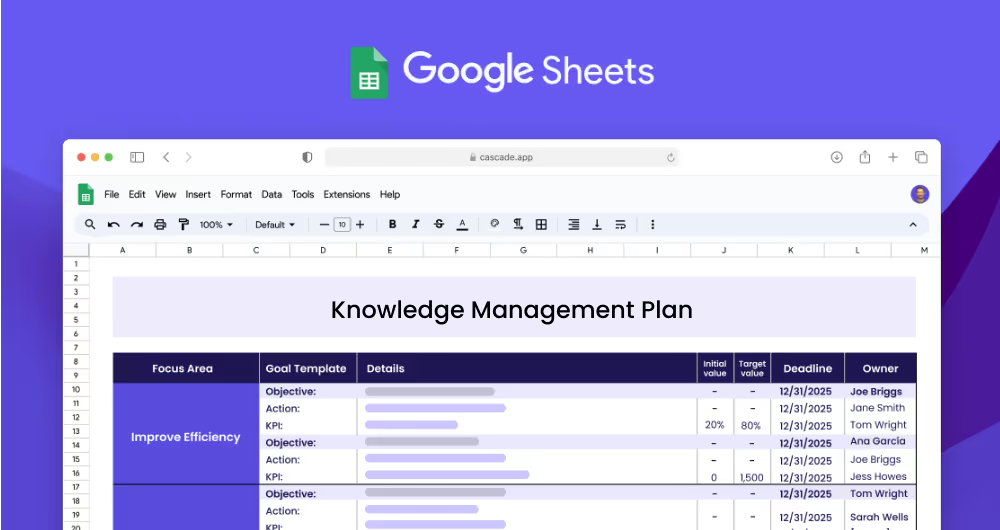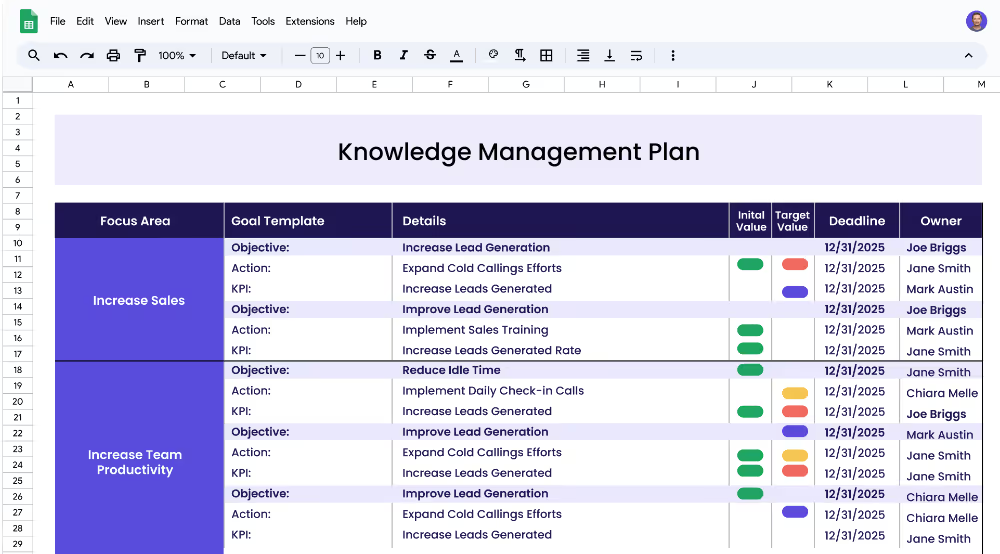A knowledge management plan outlines how an organization will manage, store, and centralize its data, information, and knowledge in order to improve productivity and efficiency. This plan helps organizations streamline and simplify internal processes, while ensuring that data is securely stored and accessible to those who need it. Additionally, a knowledge management plan can help organizations better understand the needs of their customers and develop better customer service strategies.
Each focus area has its own objectives, projects, and KPIs to ensure that the strategy is comprehensive and effective.
The knowledge management plan template is designed for organizations of all sizes who want to create a comprehensive strategy for managing their knowledge and data. Whether you’re a small business or a large enterprise, this template can help you develop a plan that meets your specific needs and objectives.
Focus areas are the key topics, initiatives, or strategies that your organization wants to tackle. Examples of focus areas include knowledge management, customer service, employee engagement, and process efficiency. Each focus area should be broken down into objectives, actions, and KPIs to help you define and measure progress.
Objectives are the goals that you want to achieve under each focus area. They should be specific, measurable, and achievable. Objectives should be formed in such a way that they are easily understood, and they should be broken down into actionable initiatives that can be taken in order to achieve them.
Examples of some objectives for the focus area of Knowledge Management could be: Improve Organizational Efficiency, and Increase Accessibility of Information.
Key performance indicators (KPIs) are metrics that are used to measure the success of a goal or objective. KPIs should be set in order to track progress against the objectives. KPIs should be specific, measurable, and achievable.
An example of a KPI for the focus area of Knowledge Management could be: Reduce time spent on manual tasks.
Projects are the actionable activities that you need to take in order to achieve the KPIs. Projects should be linked to the objectives and KPIs, and should be broken down into smaller initiatives that can be completed over a given period of time.
An example of a project related to Knowledge Management could be: Implement Knowledge Management System.
Steer clear of the limitations of spreadsheets and elevate your strategy management with Cascade Strategy Execution Software. Ideal for optimizing tasks like managing, tracking, and executing complex strategies, Cascade not only enhances real-time communication and collaboration across teams but also ensures that strategic plans are achieveable and impactful. Sign-up for free or book a demo with one of our strategy experts to explore the transformative potential of Cascade for your organization.


